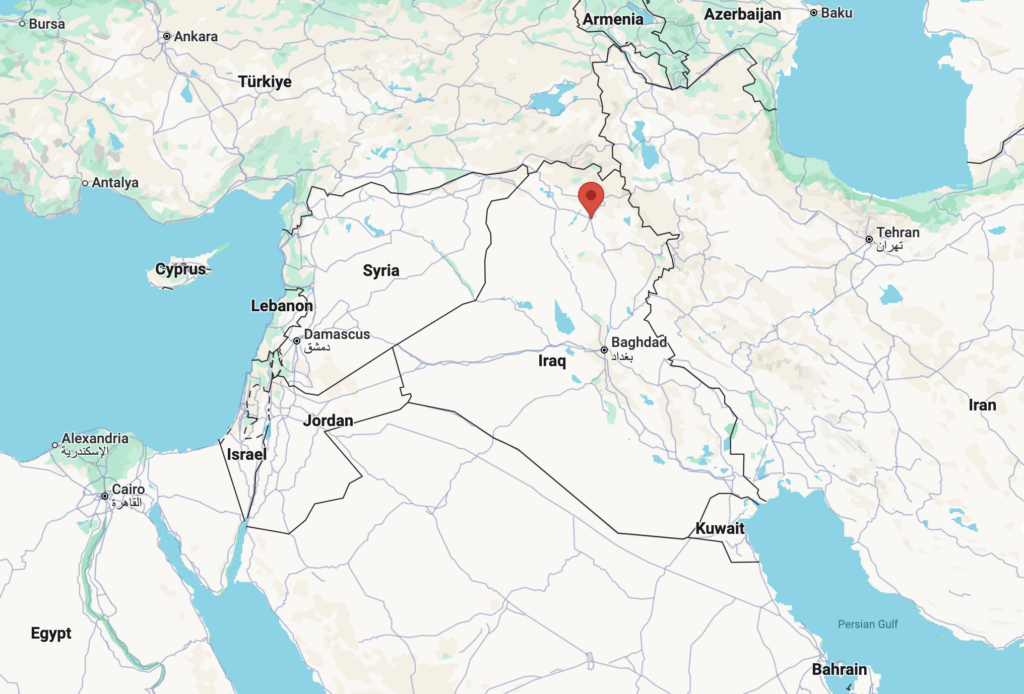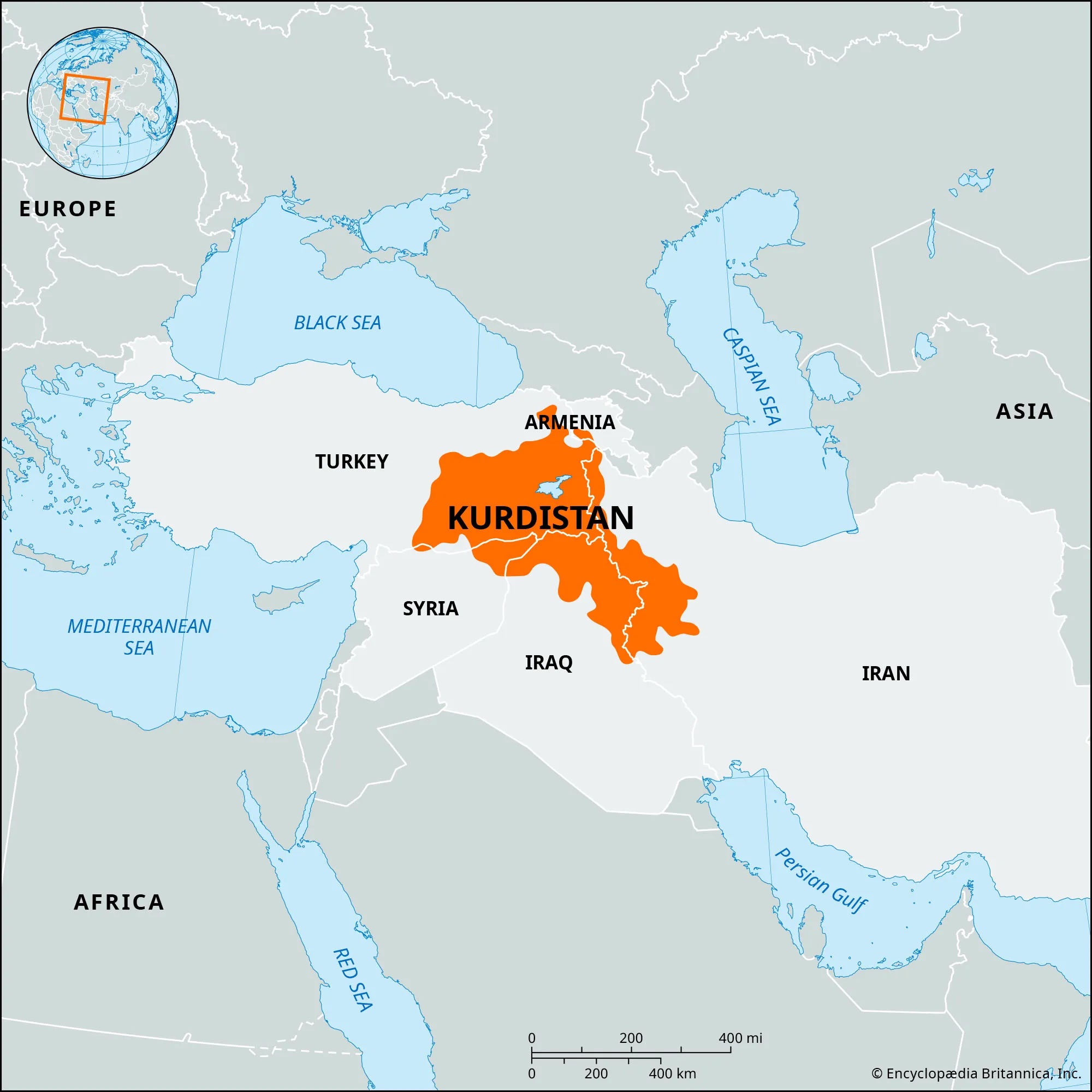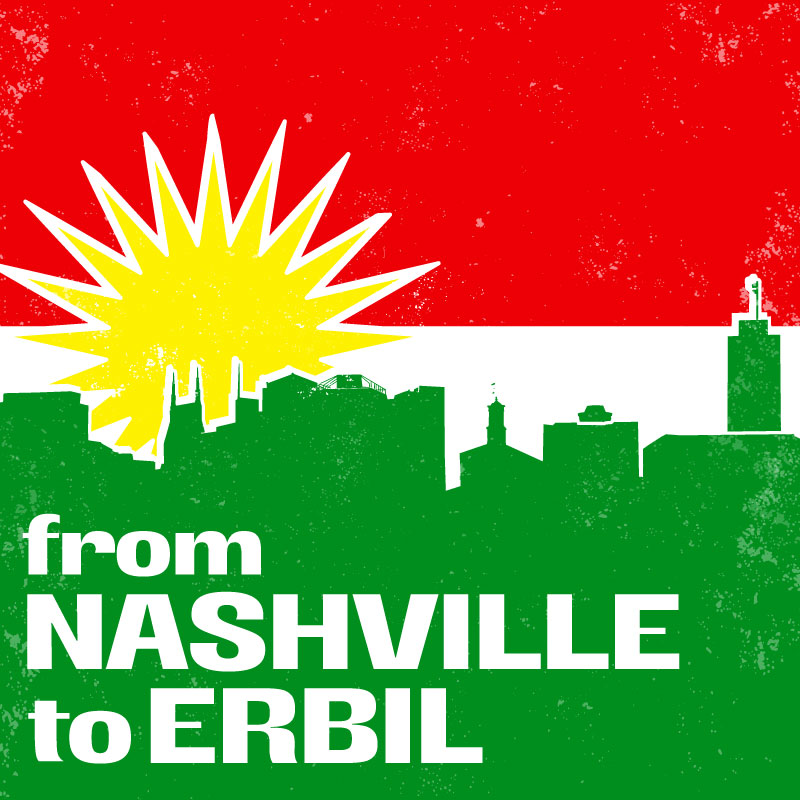
When you’re a reporter, you follow the story where it takes you — literally. During my time at WPLN, I’ve tracked down stories at the Capitol, chased down storm damage along rural roads and even spent an evening interviewing members at a biker clubhouse.
But my next project will take me farther afield than ever before.
In just a couple short weeks, I will be traveling to Erbil, the capital of Iraqi Kurdistan and Nashville’s newest sister city.
As you might know, Nashville is home to the largest Kurdish community in the United States, and most of that community traces its roots to northern Iraq. Over the past few months, I’ve spoken with advocates, government officials, business owners, resettlement workers and artists to learn more about how Music City’s Little Kurdistan came to be. I’m deeply grateful to everyone who has taken the time to share their stories and fill me in on local history.
Now, I’m going to be spending five weeks in Iraqi Kurdistan. My goal is to learn more about a place that is so important to so many in Nashville, and to get a sense of the future of the unique relationship between our two regions.
A lot of people here in Nashville know at a least a little bit about the local Kurdish community. Maybe you remember when Nashville was one of five U.S. cities selected as a polling place for Iraqi elections in 2005. Or maybe you’ve had Kurdish food at one of the many wonderful restaurants across town. But there’s always more to learn.
Knowing what Kurdistan is is a great place to start. Crucially, it’s not a sovereign nation, making the Kurdish people one of the largest stateless peoples in the world.
 Encyclopedia Britannica
Encyclopedia Britannica Kurdistan is a region that falls across (at least) four nations: Iran, Iraq, Syria and Turkey.
Kurdistan is a region that falls across four different countries: Iran, Iraq, Syria and Turkey. As a result, each of these four parts of Kurdistan have a different government and different levels of autonomy from that government. The struggle for self-determination is a vital thread across much of Kurdish history, spanning years of rebellions and ethnic cleansing and the rise and fall of regional powers from the Ottoman Empire to ISIS.
Iraqi Kurdistan, specifically, has operated as a semi-autonomous administrative region that has been formally recognized by the Iraqi government since 2005. But the strong Kurdish preference for independence — as re-emphasized in a landslide 2017 independence referendum — continues to be a point of tension in the relationship between Erbil and Baghdad. (To give you an idea of what “semi-autonomous” means, my visa is only valid for the Kurdistan Region in northern Iraq; I’d need an entirely different visa to visit Baghdad, or anywhere else in Iraq.)
Nashville’s Kurdish community dates back to 1976, when refugees of the Second Iraqi-Kurdish War first settled down in Middle Tennessee. The 1990s brought two even larger waves and put Nashville on the map as a major hub of the international Kurdish diaspora.
That reputation continues to attract newcomers today, with a post-pandemic uptick in asylum-seekers from the Turkish part of Kurdistan (some of whom are finding new ways to keep their culture alive in Music City).
The plan is to tell that story through an in-depth narrative project, but that’s going to take some time. So for now, I’ll be posting dispatches from my trip online, as well as updates on social media.
In the meantime, if you want to learn more about my reporting from Nashville’s Kurdish community, check out this virtual event on Friday featuring yours truly and our wonderful education reporter, Alexis Marshall.


